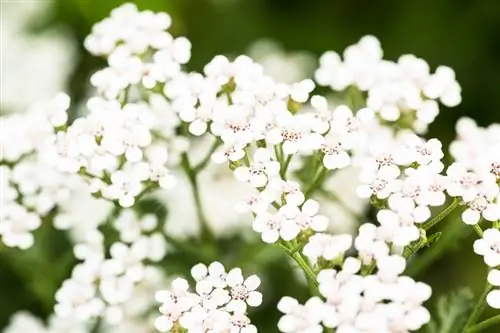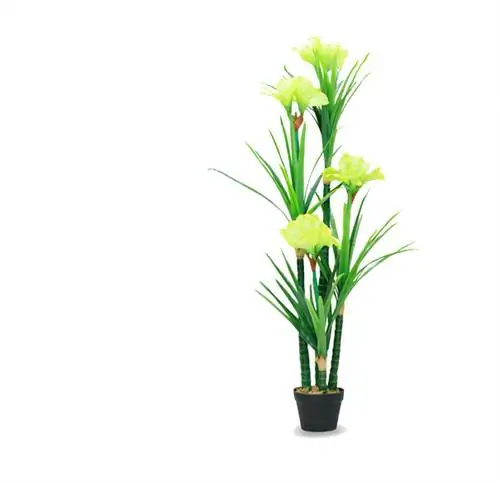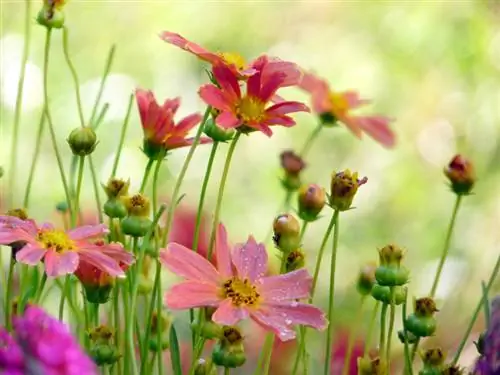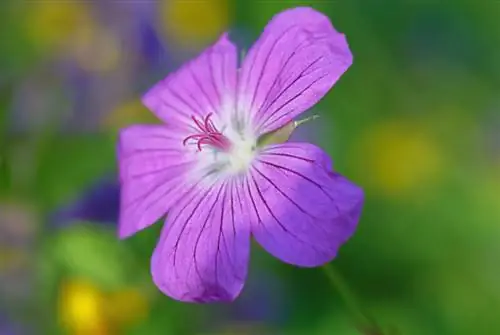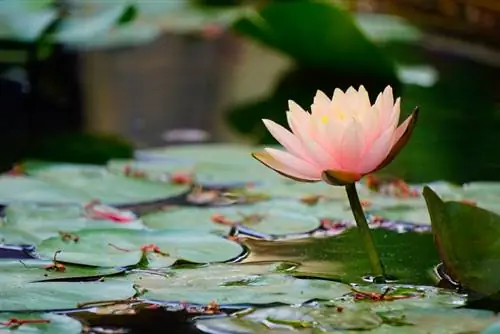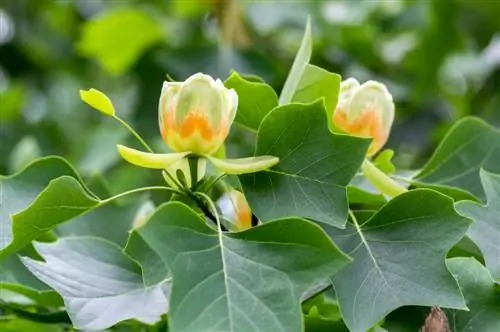- Author admin leonars@hobbygardeners.com.
- Public 2023-12-16 16:46.
- Last modified 2025-01-23 11:20.
The common yarrow or common yarrow (Achillea millefolium) often grows in nature along roadsides or in fodder meadows. The edible medicinal plant also represents a visual enrichment in the garden bed with little maintenance required.
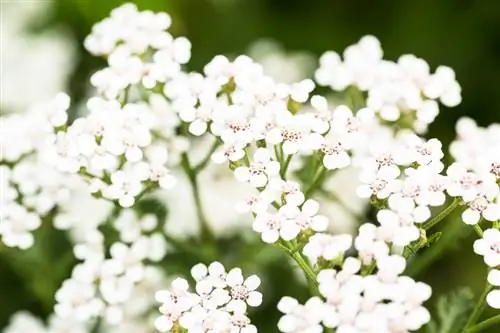
When is the flowering time of the yarrow?
Yarrow (Achillea millefolium) has a flowering period from May to September and can bloom continuously for several weeks. To encourage a second flowering in the same year, spent flowers should be cut off as soon as possible.
Astrological family with endurance
In contrast to many other perennials, yarrow blooms quite persistently for several weeks, depending on the location and weather, a little earlier or later in the period from May to September. In botanical terms, the plant is a composite family, which can cause skin irritation and other intolerances in sensitive people. Due to the so-called “deceptive umbels”, the white natural varieties of yarrow in particular are occasionally confused with poisonous counterparts from the umbelliferous family. These “doppelgangers” include, for example:
- Meadowfoam (non-toxic)
- Spotted hemlock (poisonous)
- Giant hogweed (poisonous)
Care measures for a second flowering
If the yarrows in your garden have bloomed relatively early and have already faded, you can stimulate a second bloom in the same year by cutting off the old flowers as soon as possible. This care measure for renewed flowering can also be done with a harvest of plant parts for use as a medicinal plant.
Leave faded plants in the bed
Even after flowering, the stems and flower plates of the yarrow sometimes have impressive stability. That's why some gardeners like to leave them in the bed as decoration over the winter and only remove them in spring.
Tip
If you want to promote particularly large and flowery flower plates on your yarrows in the garden, you can cut off weaker shoots on the plants in spring or “clip them out” with your fingernail. In this way, the plants concentrate their growth energy on a smaller number of stronger shoots.

